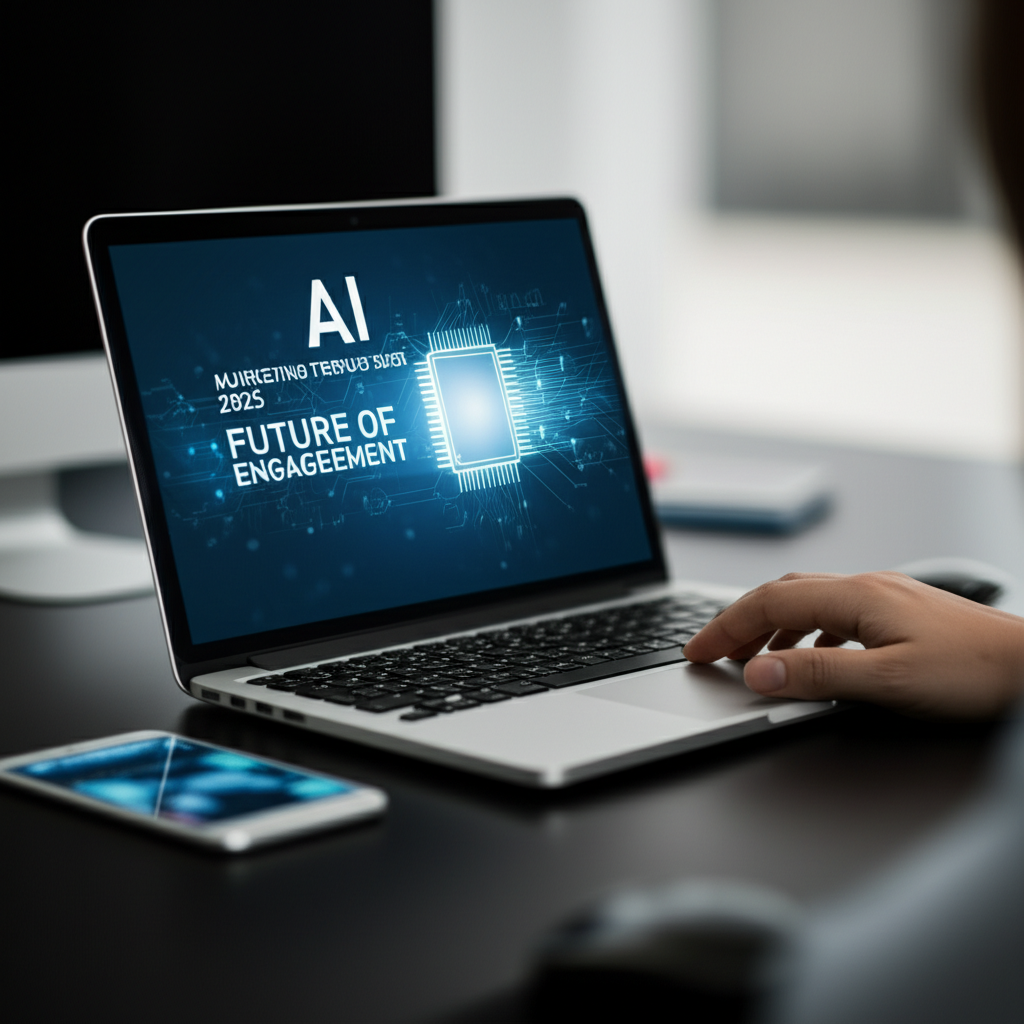AI Marketing Trends 2025: Navigating the Future of Intelligent Customer Engagement
The landscape of marketing is evolving at an unprecedented pace, primarily driven by the transformative power of Artificial Intelligence. AI marketing in 2025 will transcend mere automation, becoming the cornerstone of hyper-personalized, data-driven, and highly efficient strategies. From predicting consumer behavior with uncanny accuracy to generating compelling content autonomously, AI is poised to redefine how brands connect with their audiences. Businesses that embrace these emerging AI trends will not only optimize their marketing spend but also cultivate deeper, more meaningful customer relationships, securing a significant competitive advantage in an increasingly intelligent digital world.
Hyper-Personalization at Unprecedented Scale
In 2025, AI will move beyond basic segmentation to enable true hyper-personalization, creating unique, dynamic customer experiences for every individual. Leveraging sophisticated machine learning algorithms, AI platforms will process vast datasets – including browsing history, purchase patterns, social media interactions, and even biometric data – to understand customer intent and preferences at a granular level. Imagine a retail website that not only recommends products you’re likely to buy but also adjusts its layout, imagery, and messaging in real-time based on your emotional state, location, and immediate needs.
This level of personalization extends to every touchpoint of the customer journey, from initial ad impressions to post-purchase support. AI will dynamically optimize email content, push notifications, website pop-ups, and even call center scripts, ensuring that each interaction feels uniquely tailored and highly relevant. The goal is to anticipate needs before they are articulated, offering solutions that delight and engage, thereby fostering stronger brand loyalty and driving higher conversion rates. Are marketers truly ready for this depth of individual engagement?
Generative AI for Autonomous Content Creation and Optimization
One of the most exciting AI marketing trends for 2025 is the widespread adoption of Generative AI for content creation. Gone are the days when AI merely assisted in drafting headlines; advanced generative models will be capable of producing high-quality, engaging content across various formats—from blog posts and social media updates to video scripts and even entire ad campaigns. These AI systems can learn brand voice, adapt to target audience nuances, and generate content at scale, significantly reducing the burden on human creative teams.
Beyond creation, Generative AI will also play a crucial role in content optimization. By analyzing real-time performance data, AI can automatically iterate on content, tweaking headlines, adjusting copy, or even redesigning visual elements to maximize engagement and conversion. This continuous, autonomous A/B testing ensures that marketing messages are always performing at their peak, delivering the right content to the right person at the right time. The synergy between human creativity and AI efficiency will become a cornerstone of successful content marketing strategies.
AI-Powered Predictive Analytics and Strategic Foresight
By 2025, AI will be indispensable for predictive analytics, moving marketing from reactive to proactive. Marketers will leverage AI to forecast future trends, identify emerging customer segments, and predict potential market shifts with greater accuracy than ever before. This includes forecasting sales cycles, predicting customer churn, and even anticipating product demand before it materializes. Such foresight allows businesses to strategically allocate resources, optimize inventory, and launch targeted campaigns with minimal risk and maximum impact.
Furthermore, AI will revolutionize ROI measurement and attribution. Traditional attribution models often struggle with the complexity of multi-touch customer journeys. AI-driven attribution models will analyze every touchpoint, from initial discovery to final purchase, assigning precise value to each interaction and channel. This unparalleled clarity will enable marketers to understand exactly which efforts are driving revenue, allowing for hyper-optimized budget allocation and a truly data-driven approach to marketing spend. This shift from gut feeling to data certainty will redefine marketing effectiveness.
Ethical AI, Data Privacy, and Trust-Building in Marketing
As AI becomes more deeply embedded in marketing operations, the importance of ethical AI, data privacy, and transparency will intensify in 2025. Consumers are increasingly aware of how their data is collected and used, and they demand greater control and transparency. Marketing organizations will need to prioritize responsible AI development, ensuring algorithms are unbiased, fair, and respectful of user privacy. Adhering to evolving global data protection regulations (like GDPR and CCPA) will not just be a legal necessity but a fundamental pillar of brand trust.
Building trust through transparent AI practices will become a significant competitive differentiator. Brands that clearly communicate their AI usage, offer opt-out options, and demonstrate a commitment to data security will foster stronger customer relationships. This includes explaining how personalization works, how data is anonymized, and ensuring human oversight in critical AI-driven decisions. A failure to address these ethical considerations could lead to severe reputational damage and consumer backlash, reminding us that while AI offers immense power, it also carries immense responsibility.
Conclusion
The AI marketing trends of 2025 paint a vivid picture of a future where marketing is more intelligent, efficient, and deeply personalized than ever before. From crafting bespoke customer journeys at scale to autonomously generating high-performing content and providing unparalleled strategic foresight, AI is reshaping the very fabric of brand-consumer interactions. However, this transformative power comes with an imperative: the unwavering commitment to ethical practices, data privacy, and transparency. Businesses that proactively embrace these technological advancements while upholding trust and responsibility will not merely survive but thrive, cementing their position as leaders in the hyper-competitive digital landscape of tomorrow. The future of marketing is undeniably intelligent, and it’s arriving sooner than we think.
